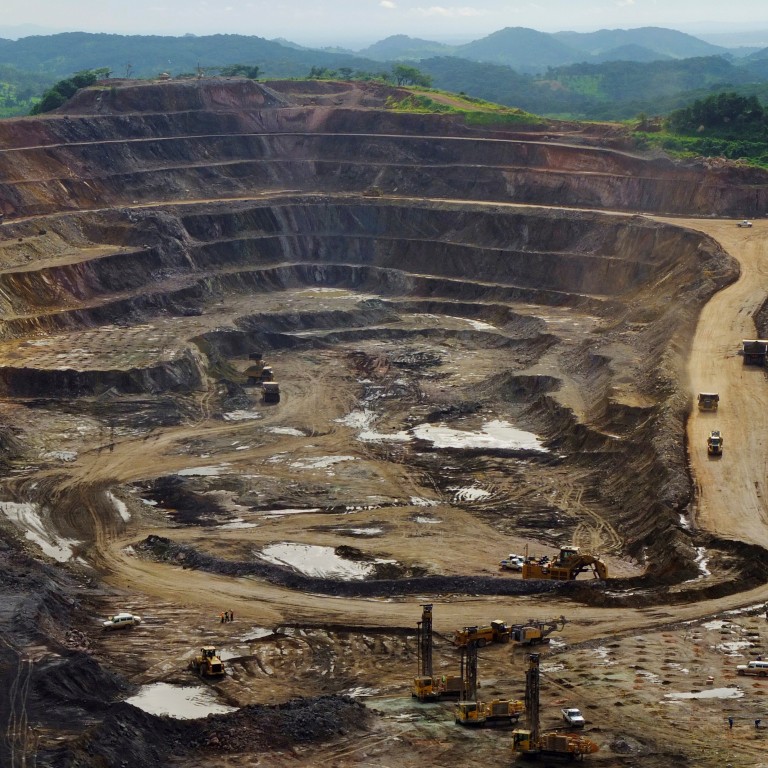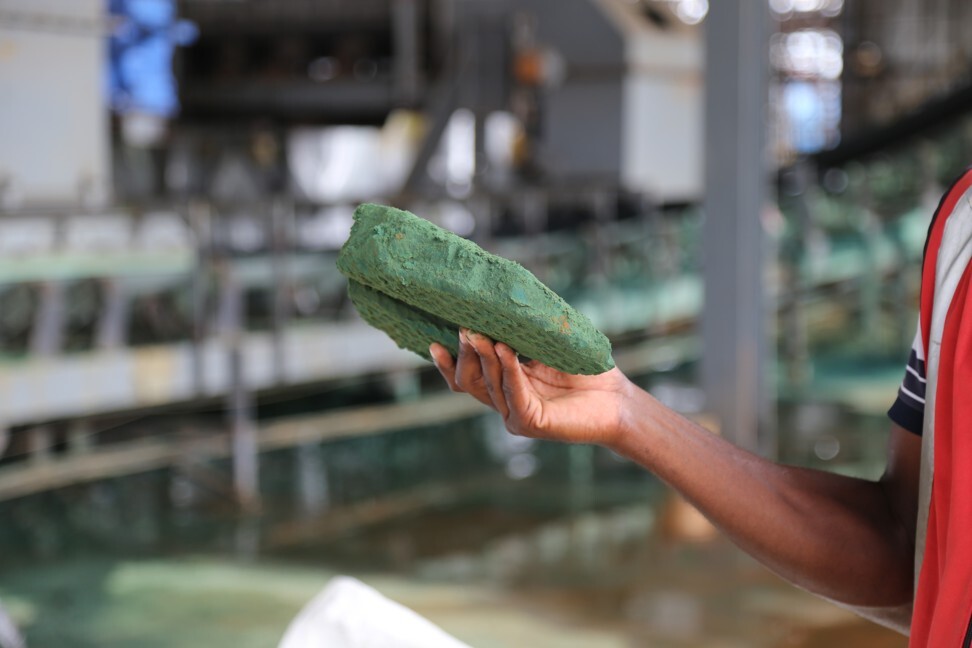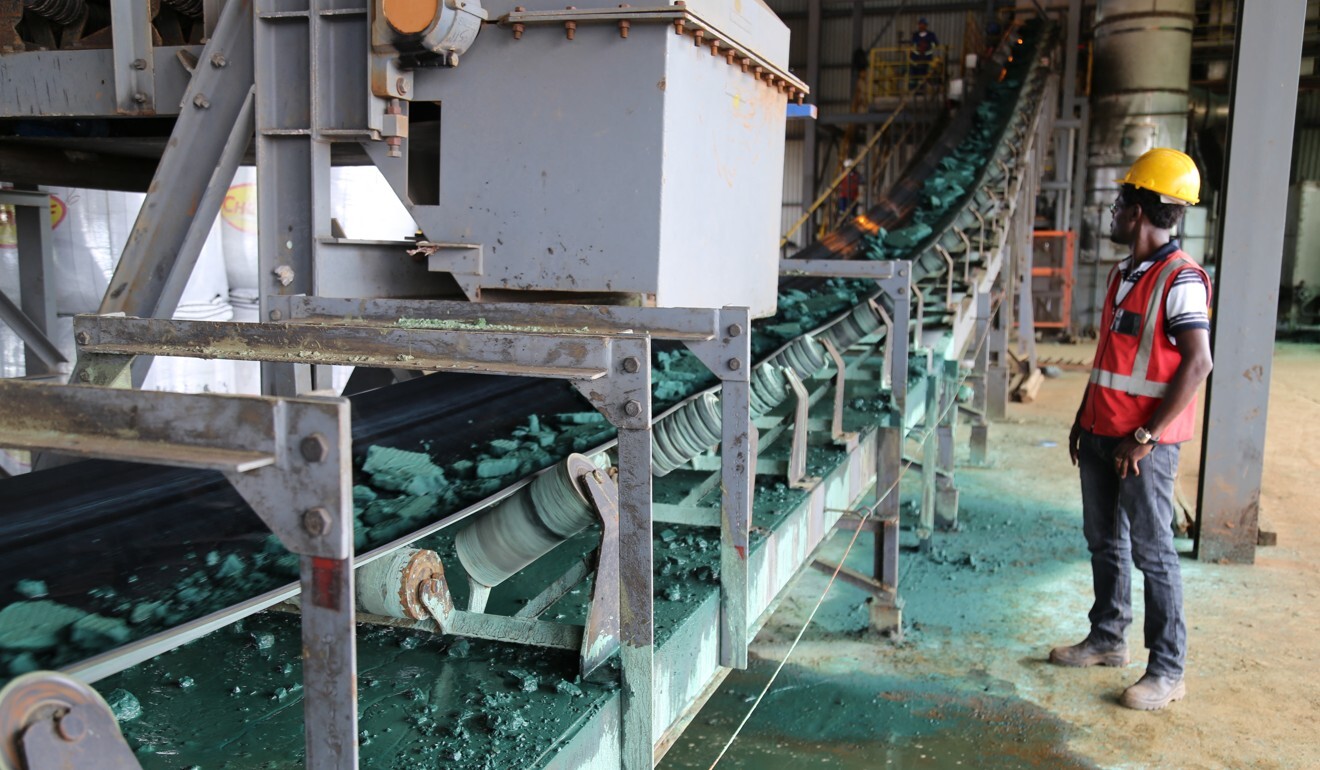
Congo reviews Chinese mine contracts after President Felix Tshisekedi pushes back against deals favouring foreign firms
- DRC government forms commission to determine and assess mineral resources at Tenke Fungurume Mining copper and cobalt project, majority-owned by China Moly
- Scrutiny of mining contracts is not surprising given the current higher copper and cobalt prices, say observers
But the DRC, which supplies more than 60 per cent of the world’s reserves of cobalt ore, believes it may be getting short-changed by foreign mining companies – and is investigating whether unfair foreign mining contracts were signed during the previous administration.

This would help determine the true value of the government’s shareholding through its state-owned mining company La Générale des Carrières et des Mines (Gecamines).
The commission, which is chaired by Guylain Nyembo, the chief of staff of President Felix Tshisekedi, “would also propose, explore and implement solutions aimed at eliminating all forms of disparities or avoiding any situation likely to affect operations of the mining project”, according to documents shared with media by Tshisekedi’s office.
Gecamines owns 20 per cent of TFM and China Molybdenum is the main shareholder.
China cancels Democratic Republic of Congo loans as it joins belt and road
The investigation comes just a few weeks after the Chinese company announced a US$2.5 billion investment, with the Congolese government probably looking for a bigger share of its minerals.
Tshisekedi believes his predecessors in Kinshasa signed lopsided contracts with mining companies that denied the Congolese people their fair share of the benefits from the sale of their nation’s minerals.
“I have really had enough. They come with empty pockets and leave billionaires,” Tshisekedi said in May while on a visit to the mineral-rich town of Kolwezi in the south of the country. “It is time for the country to readjust its contracts with miners to seal win-win partnerships.”
Tenke Fungurume Mining is majority-owned by China Molybdenum, which it bought in 2016 from US company Freeport-McMoRan.
Why China is making a big play for Congo’s cobalt – and other critical minerals
Christian-Geraud Neema, an independent Congolese mining and policy analyst, said a 2002 mining code was deemed to be more favourable to foreign companies than the Congolese government.
In most cases the state barely held between 10 and 20 per cent of the shares through companies such as Gecamines.
Civil society and the International Monetary Fund have in the past decade been piling pressure on the government to make public the contracts it signed.
Neema said former president Joseph Kabila published a new mining code in 2018 that was supposed to rectify this situation.
Contracts signed under the new code such as the Deziwa copper-cobalt mine project, a joint venture between Gecamines and China Nonferrous Metal Mining, have been presented as a model because the Congolese state held 49 per cent and the Chinese 51 per cent.

In July, the International Monetary Fund reported that the DRC had started publishing new mining contracts as part of an argreement to improve transparency and governance in the mining industry.
It said Kinshasa had published 146 of 162 contracts prepared by the DRC Extractive Industries Transparency Initiative (EITI) and other organisations. This year at least 21 contracts signed before 2012 have been published.
Neema said many were surprised by the decision to start the process of revising contracts with the TFM project because “it has not recently been the subject of particular criticism from civil society”.
EV battery firm CATL shores up cobalt supply with stake in DRC mine
When it acquired the project in 2015, China Moly inherited the terms of a contract that had been revised in 2010 by the Congolese government and Freeport McMoRan.
“So, what could have changed between 2015 and 2021 for President Tshisekedi to decide to start with TFM, that remains a mystery,” Neema said.
“The terms of the decree creating the review committee are vague enough at this point to determine what the Congolese government intends to get from the revision of this contract. Time will tell.”
Chris Berry, president of commodities advisory firm House Mountain Partners in New York, said with higher copper and cobalt prices, “I’m not at all surprised to see the DRC government looking at contractual obligations.”
Berry said it seemed as though this always happened when commodity prices reached new heights. According to the London Metal Exchange, cobalt has risen above $50,000 per tonne, approaching 2018 levels, boosted by demand for electric vehicles in Europe, China and the US.
“Perhaps the DRC government wants to see more of the copper-cobalt supply chain built inside the country as opposed to shipping the mined ore back to China or Europe,” Berry said. “Given that there is such an enormous focus on supply-chain buildout for batteries, in particular, this makes sense.”
However, he said the issue was not likely to hurt Chinese companies in the DRC over the long term. “China is a major source of foreign direct investment in the country which benefits both China and the DRC at the end of the day,” Berry said.
Other Chinese companies operating in the DRC include Huayou Cobalt, Chengtun Mining, Wanbao and China Nonferrous Metal Mining.
One of the biggest deals signed under Kabila was in 2008 when Gecamines formed the joint venture Sicomines with a consortium of Chinese firms led by Sinohydro and China Railway Engineering Corporation to develop a copper and cobalt mine.
China Eximbank then awarded Sicomines two credit lines totalling US$6.2 billion for the development of the mine and public infrastructure projects, according to the New York-based NGO, Natural Resource Governance Institute.
The DRC agreed to pay back the funding with future copper and cobalt output from the project in what are known as resource-backed loans.

